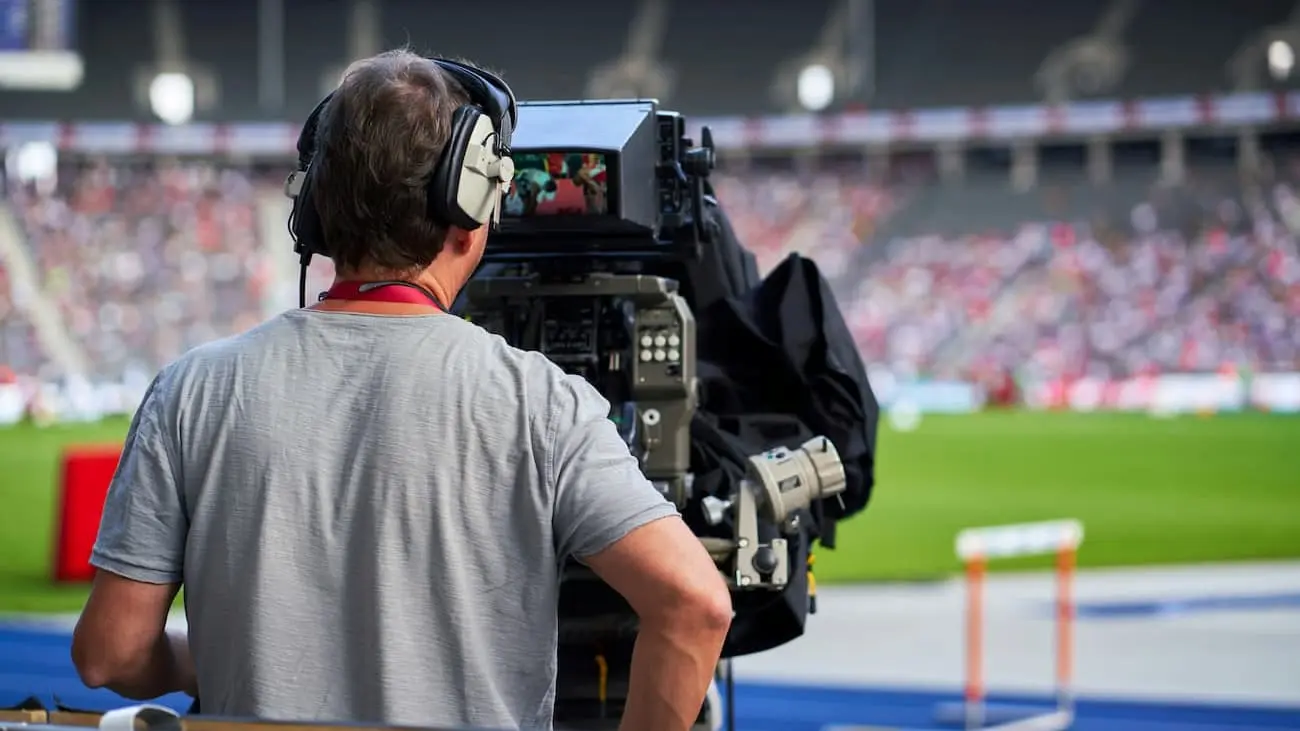ENTRY OF DFL INVESTOR FAILED
Thiago Calderaro
The German Football League (DFL) is facing a significant change, akin to the transformative developments experienced by other sports leagues such as Formula 1 and the NFL in recent years. These international sports institutions have significantly expanded their global presence and financial performance through targeted marketing strategies and the adoption of modern digital technologies. For the Bundesliga, the planned entry of an investor offers the opportunity to embark on new paths and position its product for the future. But what does this specifically mean for the league, the clubs, and the fans? This analysis sheds light on the goals, the use of investment capital, and the diverse opinions within the league.
What are the Bundesliga's goals?
The Bundesliga's ambitions to further establish and expand in the dynamic and increasingly globalized sports world are at the heart of the DFL investor model. The strategic goal of this initiative is to strengthen the international presence and market position of the league, thereby enhancing its attractiveness and competitiveness on the global market. With the acquisition of investor capital amounting to approximately one billion euros, the DFL is pursuing a multidimensional approach that encompasses both digital transformation and international marketing.
A key aspect of this initiative is the intensification of foreign marketing. This involves not only increasing the visibility of the Bundesliga in international markets but also opening up new sources of revenue and establishing the league as a global brand. This includes creating tailor-made content and offers for foreign fans to strengthen their connection to the league and expand its global fan base.
In parallel, the initiative aims to expand and strengthen the international TV streaming business. The development of a proprietary streaming platform will allow exclusive content to be marketed directly to international fans, serve the global demand for Bundesliga matches, and thereby significantly increase TV revenue. In this context, the investor is seen not only as a financial but also as a strategic partner enabling the Bundesliga to realize its vision of a global brand and a leading player in international sports.
What will the money be used for?
Of the total sum of one billion euros, 600 million euros are earmarked for the core areas of digitalization and internationalization. Specifically, this includes:
164 million euros for a proprietary digital platform for presenting video content and selling subscriptions directly to fans.
183 million euros to promote marketing abroad, including supporting clubs on foreign tours and creating specific content for international markets.
126 million euros for measures in the German market, especially against illegal streaming and for the further development of broadcasting technologies.
65 million euros for advertising partners, mainly for virtual advertising.
8 million euros for expanding the "Virtual Bundesliga" in the area of esports.
54 million euros remain as a strategic reserve.
An additional 400 million euros of the investment is intended to directly support clubs on their foreign tours and plug a financial gap created by the deal, as clubs will have to forego about eight percent of their revenue, which goes to the investor for 20 years.
How did the clubs vote?
In the re-vote on the DFL investor entry, it is interesting to note that the necessary majority was reached exactly to the vote.
Voting For the Entry:
FC Bayern Munich
Borussia Dortmund
RB Leipzig
Bayer 04 Leverkusen
TSG Hoffenheim
VfL Wolfsburg
Werder Bremen
Borussia Mönchengladbach
VfB Stuttgart
Eintracht Frankfurt
VfL Bochum
FC Heidenheim
SV Darmstadt 98
FSV Mainz 05
Hamburger SV
FC Schalke 04
SpVgg Fürth
SC Paderborn
Karlsruher SC
Hansa Rostock
Voting Against the Entry:
SC Freiburg
FC Cologne
FC Union Berlin
FC St. Pauli
Fortuna Düsseldorf
FC Nuremberg
Eintracht Braunschweig
Hertha BSC
FC Magdeburg
Abstentions:
FC Augsburg (abstaining)
VfL Osnabrück (abstaining)
Vote Unknown:
SV Elversberg
FC Kaiserslautern
Holstein Kiel
Wehen Wiesbaden
Hannover 96
Martin Kind, the CEO of Hannover 96, found himself in a controversial position. Although he is regarded as a supporter of the investor entry, he received written instruction from the parent club to vote against the entry. Kind's voting behaviour remains officially unconfirmed, highlighting internal division and potential legal repercussions. "Should all clubs that did not consent make a public statement, thus identifying Kind as a yes-voter, legal proceedings could follow." This situation underscores the complex dynamics within the clubs and the challenges associated with such fundamental decisions.
Who has spoken out in favour of the investor entry?
Marc Lenz (DFL CEO):"It's a good sign that we, the DFL and the clubs together, want to develop the Bundesliga and 2. Bundesliga further. This provides a good basis for us to act now."
Jan-Christian Dreesen (CEO of FC Bayern):"This is an important step for the development of the league, the opportunity for further development in terms of digital infrastructure, and with that, we are quite satisfied."
Fernando Carro (CEO of Bayer Leverkusen):"Today, only a small step has been taken. The real work for the management and the presidency starts now. Tough negotiations are ahead, because this is about the money of German football - and it's not a blank cheque."
The DFL and proponents of the investor model emphasize that the "red lines" are a necessary basis for the partnership with an investor to secure the league's economic future while preserving its independence and identity. They argue that the additional financial resources are crucial to competing internationally and enhancing the league's appeal to both fans and players.
What concerns do critics have regarding the "red lines"?
The introduction of "red lines" by the German Football League (DFL) in the context of the planned investor entry is a central point of contention and criticism. These red lines are intended to ensure that the investor cannot directly influence key sporting decisions and the integrity of the league. Specifically, this means that the investor shall have no say in the scheduling of matches, the venues for games, especially in an international context, or the introduction of new competition formats. The aim of these measures is to preserve the independence and traditional values of German football.
Criticism Includes:
Doubts about enforceability: A major criticism is the question of the actual enforceability of these red lines. Critics, including both fans and some club representatives, express concerns that the established financial interests of an investor could overshadow the sporting and cultural values of the Bundesliga. There is a fear that the league and its clubs could be pressured in the long run to make decisions favouring profit maximization at the expense of fans and sporting fairness.
Long-term commitment and influence: The long-term commitment of the league to an investor – contracts with a term of 20 years are under discussion – raises questions about the future flexibility and sovereignty of the DFL. Critics fear that the red lines could erode over time or be circumvented through creative interpretations, especially when it comes to opening up new markets or marketing the league globally.
Examples from other leagues: Skeptics point to examples from other sports and leagues where the influence of investors has led to shifts in match times, the staging of games in neutral countries, or changes to the competition structure. These developments are often seen as negative for the traditional fans and the local rooting of clubs.
Risk of commercialization: Another concern is that the introduction of an investor and the associated commercial orientation could lead to further alienation between the clubs and their traditional fan bases. Fans fear that the unique football culture in Germany, heavily influenced by club traditions and fan participation, could suffer under too strong commercialization.
How does the fan alliance "Unsere Kurve" express itself?
The fan alliance "Unsere Kurve" has positioned itself in recent months as one of the loudest and most influential voices in opposition to the investor entry into the German Football League (DFL). Through a consistent and public campaign, they have made clear that the core of football culture in Germany is threatened by such financial arrangements. Their commitment is based on deep concern about the increasing commercialization of football and the potential long-term negative impacts that a partnership with private equity investors like CVC and Blackstone, which have connections to the Saudi Arabian state fund PIF, could bring.
"Unsere Kurve" criticizes above all the lack of transparency and the perceived illegitimacy of the voting processes that paved the way for the investor entry. The DFL deliberately chose a secret voting mode, which allowed managers like Martin Kind to vote against the directives of their parent clubs. This is interpreted as a disregard for the democratic structures within the clubs and the 50+1 rule. Particularly striking is their ignorance of the DFL towards the opinions and concerns of fans and members. They refer to the massive criticism and the extensive protest actions as clear signals from the fan base, expressing a clear rejection of the influence by external investors.
Concerns regarding the "50+1 rule", seen as a fundamental element of German football culture, are also central to their argument. "Unsere Kurve" sees the potential weakening of this rule through investor entry as a serious threat to the democratic and member-oriented structures within the clubs. They fear that involving investors primarily interested in profit maximization could lead to a change in club culture and undermine fan rights.
In addition to the fundamental criticism of the commercialization of football, the fan alliance also addresses the specific risks associated with potential investors, including concerns about "sportswashing" and the impact on the human rights situation in the countries involved. They highlight that financial involvement by companies with close ties to states with questionable human rights records is not only ethically questionable but could also damage the international reputation of German football.
The fan alliance "Unsere Kurve" calls for a reassessment of the entire venture and advocates for financing alternatives that preserve the independence and democratic structure of German football. The fan alliance believes that financial challenges faced by the German Football League (DFL) could be addressed internally through measures such as the use of current media revenues proposed by SC Freiburg. An alternative in the form of traditional loans, also rejected by many officials, would be conceivable.
The criticism of the fan alliance is directed against the tendency of football officials to rely on short-term and superficial solutions rather than addressing fundamental problems. This attitude, according to the alliance, is primarily driven by the deep-rooted fear that the Bundesliga could fall financially behind and lose its sporting significance. Instead of merely fighting symptoms, the fan alliance calls for restructuring aimed at making domestic competition more attractive through measures such as a fairer distribution of TV funds. They also propose stronger regulation of the European football market to curb its increasing negative developments. Specific measures for this could include the introduction of real "Financial Fair Play", the prevention of multiple club ownerships, and the establishment of a salary cap.
In summary, the fan alliance advocates for a sustainable financial strategy and structural reforms that ensure the long-term integrity and attractiveness of German football, rather than relying on external investments that could undermine the autonomy and democratic structures of the clubs.
Their commitment underscores the importance of a vibrant, free, and critical fan base actively advocating for the preservation of football's values and traditions. Through their actions and statements, they have initiated an important debate on the future of German football and established themselves as a decisive force in the fight against unwanted commercialization and externalization of the sport.
Which investors are under discussion?
At the heart of the discussion on the potential investor entry into the German Football League (DFL) are two significant investment firms: CVC Capital Partners and Blackstone Group. Both companies are known as global players in the world of private equity investments and have extensive portfolios covering a wide range of industries and markets.
CVC Capital Partners, headquartered in Luxembourg, is one of the world's leading private equity and investment advisory firms. CVC has a notable history of investments in the sports sector, including significant stakes in Spain's La Liga and France's Ligue 1, highlighting their experience and commitment to sports financing. CVC's involvement in La Liga includes an 8.2% share of revenues, while in Ligue 1, a 13% stake in marketing revenues was acquired. Additionally, CVC is involved in companies such as Deutsche Telekom, main sponsor of FC Bayern Munich, with 4.5%, and Tipico, a sponsor of the DFL, with a significant share of 60%.
The Blackstone Group, based in the USA, is one of the largest investment companies worldwide, specializing in alternative investments. They are invested in, among others, with a 5.3% stake in Allianz. Although Blackstone is not as directly present in the sports sector as CVC, the involvement of David Blitzer, a senior executive at Blackstone, in various football clubs shows Blackstone's indirect connection and interest in sports. Blitzer owns shares in clubs such as FC Augsburg, Crystal Palace FC, the Philadelphia 76ers (basketball), the New Jersey Devils (ice hockey), and more, demonstrating Blackstone's strategic focus on diversification and global presence in sports investment.
How have the fans voted?
In a comprehensive survey on football fans' attitudes towards the controversially discussed investor entry into the German Football League (DFL), a survey conducted by FanQ revealed significant rejection rates. With a sample of 2090 respondents, the survey, conducted between February 2nd and 9th, showed that 62.1% of participants strongly rejected the investor venture. This critical view is even more pronounced among stadium visitors, where around 72% of respondents decidedly opposed the entry, compared to 52% of TV viewers. Interestingly, the results also showed that a minority of TV fans, about 21%, positively view the investor entry and chose the highest approval category.
The survey also revealed a general skepticism about the effectiveness of fan protests against the DFL plan: 76.8% of respondents supported the protest actions, yet 75.2% did not believe in their impact on DFL decisions. These assessments indicate widespread disillusionment among fans, exacerbated by the voting process and its perceived lack of transparency. Harald Lange from the University of Würzburg interprets the results as an expression of deep sports-political and economic concern among fans, who fear further commercialization, the loss of football's soul, and restricted say for club members.
Furthermore, 72% of participants saw "increased commercialization" as the main danger of the deal, while "loss of football's soul" and "lesser say for club members" were considered significant risks by about 61% and 54% respectively. The potentially positive effect of the deal, namely "increased competitiveness of German clubs," was seen as the biggest opportunity by only 38.4%, whereas more than half (52.7%) saw no advantages in the venture. Additionally, 67.2% of respondents wished to maintain or even tighten the 50+1 rule, highlighting the deep connection to the traditional structures of German football.
Conclusion
The German Football League (DFL) is at a critical juncture, marked by years of neglect regarding digital innovations and global market strategies. The current discussion on investor entry reflects profound structural problems within the league, resulting from a disregard for necessary technological advancements. The resulting financial gap compared to Europe's top leagues highlights the urgent need for action to improve the international positioning of the Bundesliga. The partnership with an investor sought by the DFL is considered a necessary measure to catch up technologically and intensify the league's international marketing. However, skepticism about the profitability of media rights and expected growth rates raises questions. The concern that the hoped-for financial benefits might not materialize and the league could become long-term dependent on external financiers underscores the risks of this venture.
Fan groups' reactions to the DFL's plans also reveal deep concern for preserving the cultural and democratic values of German football. The warning that traditional clubs might fall behind financially stronger teams in the future and the Bundesliga could lose relevance should be seen as a serious future scenario. The possibility of top clubs like FC Bayern Munich and Borussia Dortmund joining a European or global Super League, leaving the rest of the league struggling for international competitiveness, presents a worrisome outlook.
A balanced and forward-looking strategy is needed, addressing both the financial needs of the league and incorporating and respecting fan interests. The challenge is to find a path that enhances the international presence and attractiveness of the Bundesliga without undermining its identity or leading clubs into precarious financial dependency. The debate on investor entry should therefore be used as a catalyst for a fundamental discussion on the long-term goals and values of German football.
Epilogue
The planned investor deal of the German Football League (DFL) collapsed on 21 February 2024. DFL Executive Committee spokesman Hans-Joachim Watzke explained that it was no longer possible to continue the process due to the ongoing disruption to match operations caused by the protests. The DFL has decided not to continue the process of introducing a strategic partnership due to internal conflicts and legal concerns. Despite a 2/3 majority for the Executive Committee mandate on 11 December 2023, there is a lack of broad acceptance, particularly in light of the 50+1 rule and the events surrounding Hannover 96. This has led to the unanimous decision to return to orderly match operations and not bring the process to a conclusion.
Sources
2. https://www.ndr.de/sport/fussball/DFL-beschliesst-Investoren-Einstieg,dfl176.html
4. https://nein-zu-investoren-in-der-dfl.de/
6. https://www.sport1.de/news/fussball/bundesliga/2024/02/bundesliga-investoren-deal-der-dfl-geplatzt
Continue Reading
This might also interest you:







